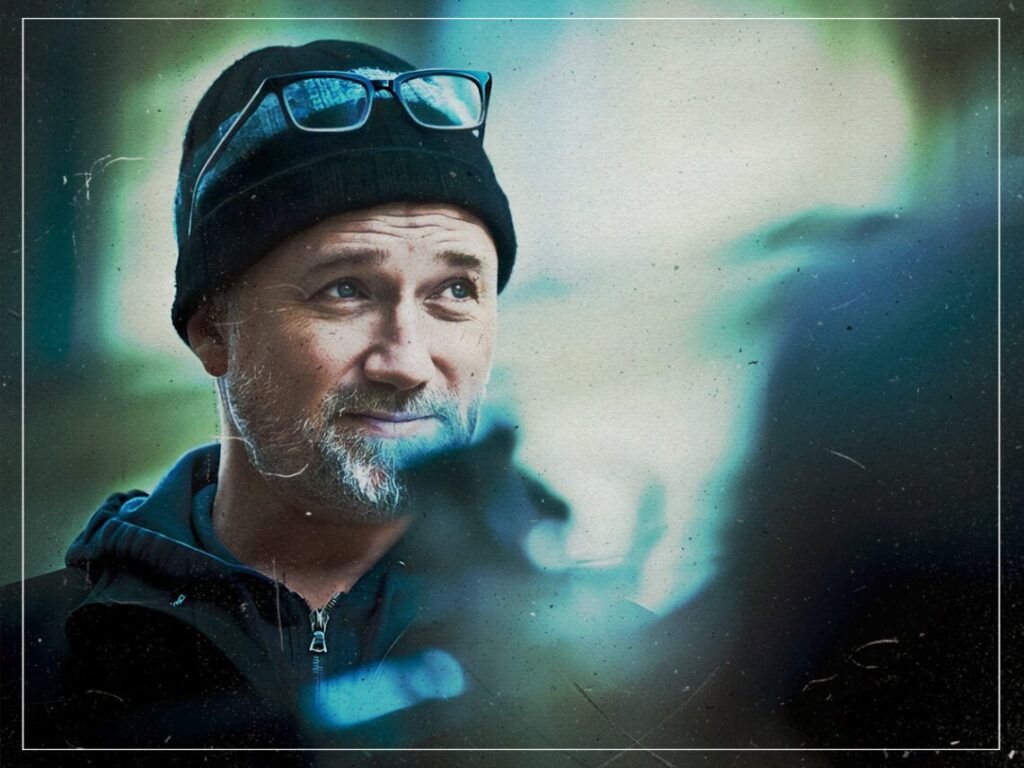The “genius” director David Fincher wants to stand on the shoulders of
 Posted On
Posted On
(Credits: Far Out / Alamy)
David Fincher‘s 2020 ‘Best Picture’ nominee, Mank, has been both lauded and derided as a cinematic piece of revisionist history. Upon its release, the director was accused of engaging in character assassination—a distortion of Welles’ personality and image. Fincher’s own comments didn’t help matters, either. Although Welles was a “genius”, said Fincher, his talent was blinded by “crass immaturity” and “delusional hubris”.
Amid allegations that Fincher was attempting to tear down Welles, he set the record straight in a Rolling Stone interview. “I’m a huge Orson Welles fan. I stand on his shoulders every day,” Fincher asserted. “He was a genius, and this movie is not designed to take any of that away from him.” In truth, Fincher isn’t merely standing on Welles’ shoulders—he’s a spiritual successor, a student of the same cinematic school.
Both directors are widely lauded for how they pushed filmmaking forward. Citizen Kane, in particular, changed the way that we make movies today. Welles was an outsider, experimenting with the form to create something that smashed the boundaries of what cinema could be – one might say he was doing this in ways that populist filmmakers hadn’t been attempting since the silent age. Innovative use of transition, shots within shots, and split-diopter lenses. At just 25, he was the definition of Hollywood’s enfant terrible.
Fincher, too, was an outsider—one of the first in a new wave of directors who cut their teeth making music videos. He was arguably among the best, with a keen focus on the sensory experience of film. After a challenging experience making Alien 3, his sophomore feature, Seven, exercised unparalleled creative control. Each shot was as he wanted it to be – and it remained untouched and away from prying eyes.
Both were perfectionists with complicated relationships to the Hollywood machine. In that regard, Fincher absolutely stands on Welles’s shoulders. Many of Welles’ movies beyond Citizen Kane were subject to studio interference. That can be exemplified with the various radically different cuts of 1942’s The Magnificent Ambersons. Welles’ method involved taking as much time and money to make something as close to perfect as possible. This was at odds with the interests of producers and studios. Their method was this: make as much money as possible. Welles had put in the hard work to establish a system that, in the 1990s and early 2000s, could work for its artists rather than against them.
Another aspect connecting the two is their use of technology. In 1958, Welles made Touch of Evil, forgoing big, bulky studio cameras and instead shooting with lightweight European cameras. He created shots that would have been considered otherwise impossible. The film opens with an expansive, three-minute-long crane shot that swoops over the scenery before seamlessly transitioning to a Steadicam shot on the ground.
Fincher was a pioneer in popularising and democratising digital filmmaking. He demonstrated that these tools weren’t exclusive to big-budget blockbusters but could effectively tell grounded, human stories, as in Zodiac and The Social Network. Fincher used VFX to cement his auteur status – to assure that every shot was exactly as he pictured it. As a result of his clear vision, his use of VFX is seamless and has aged gracefully. Mostly, that is… we won’t talk about The Curious Case of Benjamin Button.
Time will only tell if Fincher will go on to have the same revolutionary status achieved by Welles – but he certainly has a fair shot. As for his deriding comments, it might just be a compliment to say that Fincher is projecting.
[embedded content]
Related Topics


